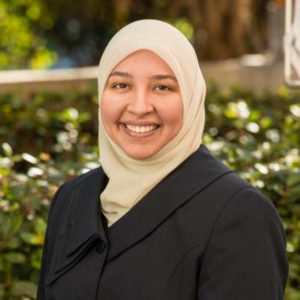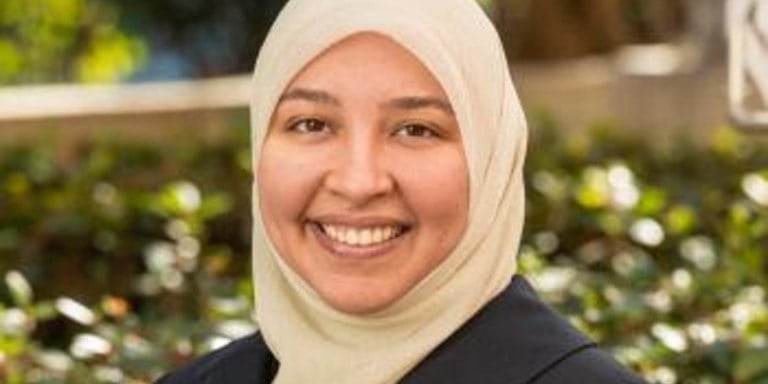Since 2014, Rania Awaad, a psychiatrist based at the Stanford School of Medicine, has created and grown the Muslims and Mental Health Lab. The multidimensional research lab is dedicated to facilitating the study of mental health within Muslim communities and is the first and only of its kind in the nation.
The lab and its work combat three major issues: stigma surrounding mental health, lack of health care providers specific to Muslim communities and lack of access to care.

“It started off during my fellowship,” said Awaad, who completed her fellowship at the Stanford School of Medicine and now directs the lab. “I found that a lot of the research that’s been done on this topic has predominantly been by people writing about Muslims who are not actually Muslims themselves and felt really strongly that it should be people that have lived experience being Muslims and people that work with the Muslim community.”
Her first study on women’s attitudes toward and perceptions of mental health within the Muslim community was conducted via email.
“Within a few weeks, we had 1,300 women take our survey,” she said. “I felt like I had really hit a nerve within our community, where people really want a chance to talk about this.”
The lab is now comprised of five branches: Advancing Science and Research, Education and Training, Clinical Innovation, Community Engagement and Partnerships and Professionalism and Leadership. Each has its own distinct mission and projects.
Within the Advancing Science and Research branch, for example, researchers are now translating manuscripts from as far back as the sixth century in order to get a sense of how mental health was treated and written about at the time.
“Muslims pride themselves on the Islamic Golden Age, which was an age of enlightenment with huge advances in science and humanities and medicine and all the rest — but even with all those advances, we never really hear about advances in mental health,” Awaad said. “So I went on this mission to uncover what it is that in this age of enlightenment was spoken and discussed about mental health.”
Discoveries made by the lab’s researchers may be able to help reduce the stigma surrounding mental health care, researchers say. According to Awaad, present findings set up a precedent for Muslims to have been “the very first to classify, diagnose and treat some of the major mental illnesses that today we think were introduced by Western medicine.”
“It’s really useful because then I’m able to say, ‘Look, this is actually part of your heritage. Folks in the past did not hide away from this,’” Awaad said. “All the stigma today did not exist back then.”
Other branches of the lab are working with local partners through Awaad’s leadership. Awaad hosts the Bay Area Muslim Mental Health Professional Network monthly at Stanford to gather professionals from all aspects of the mental health system. She is also a part of a community advisory board dedicated to Muslim mental health issues and comprised of members from all different ethnic communities.
In a partnership under the Stanford Department of Psychiatry, Awaad serves as clinical director of the Khalil Center, a Muslim counseling center that currently has two locations in the Bay Area and is setting up a third.
The wide breadth of the lab’s work and the projects it hosts attracts many students.
“The diversity in scope of the lab, as well as the broad impact that it [en]compasses, has probably been one of its most appealing characteristics,” said Mustafa Fattah ’19, who is currently working on a social network analysis project in the field of Muslim mental health literature for the lab.
While expanding on current offerings, Awaad also hopes to push the lab’s efforts and reach beyond California. Among other initiatives, she is working to increase the number of Muslim mental health clinics, possibly in the East Coast and the Midwest.
Awaad also hopes that the lab will continue to increase the amount of mentorship it provides to both undergraduate and graduate students. She seeks to create a platform for future researchers and students who are interested in the topic.
Fattah added that the lab could have a broad impact on the way that mental health is discussed.
“I’m hoping that the lab will be able to start a deeper dialogue on the difficult topic of mental health in Muslim communities around the world,” he said. “Addressing stigma is deeply and increasingly vital to achieving this goal in places all over the world.”
Contact Lisa Wang at lisaw20 ‘at’ stanford.edu.
